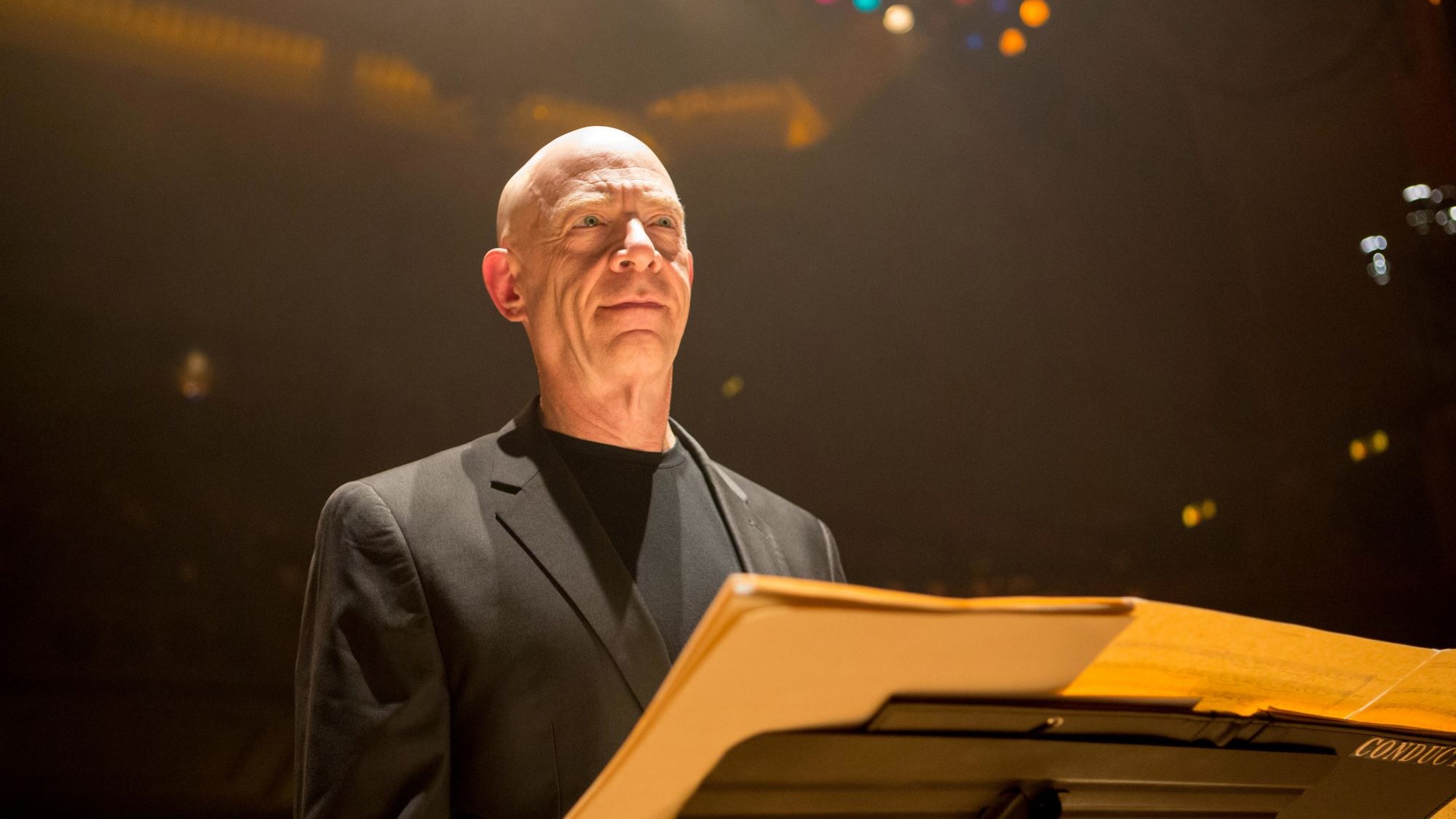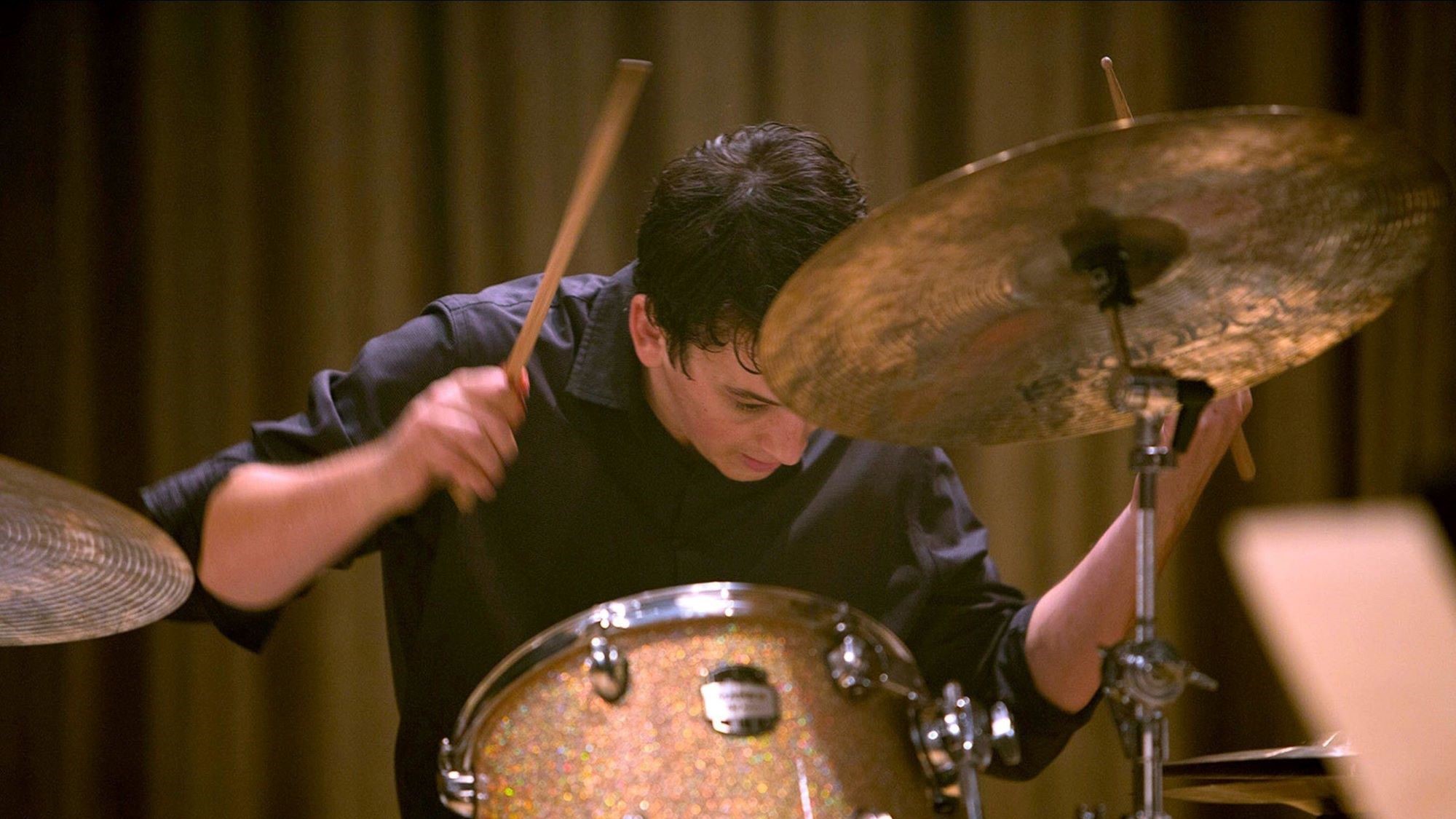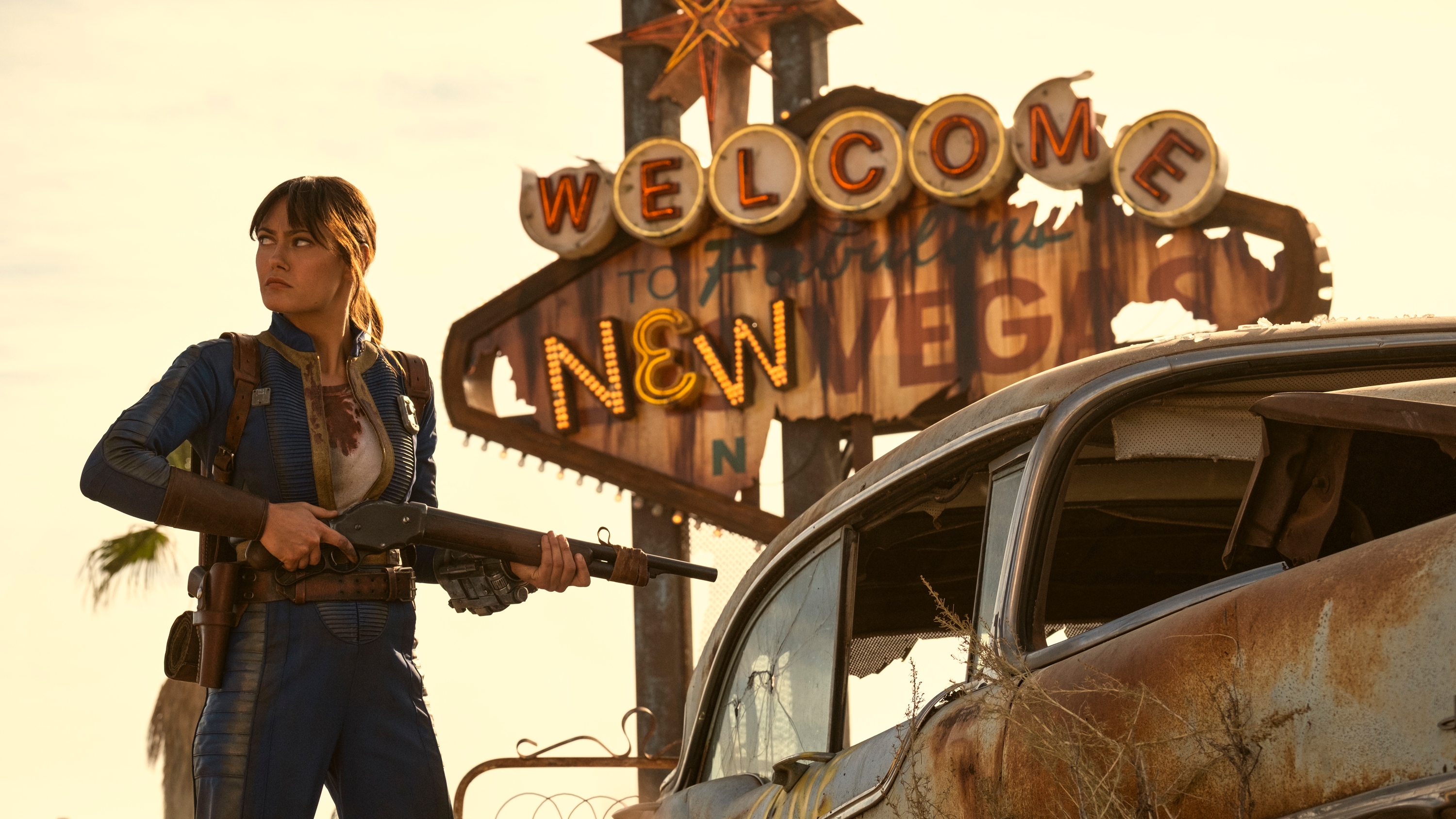Now on Netflix 10 years later, the Whiplash ending is still one of the best movie endings I've ever seen
Miles Teller’s drum solo is both incredible to watch and thematically rich.

Whiplash is now streaming on Netflix, perfect timing as the Miles Teller and J.K. Simmons movie celebrates its 10th anniversary in 2024. While I’ve previously expressed my love for Damien Chazelle’s filmography, including La La Land but specifically First Man and Babylon (both of which I believe opinion will come around on to see them as the masterpieces that they are), I want to tout the director again for his electric debut movie. Specifically the brilliant Whiplash ending that he crafted.
In case you need a reminder, Whiplash follows aspiring Jazz drummer Andrew (Teller) as he studies at a prestigious music conservatory with dreams of becoming a legendary drummer. He believes the best way to do that is to join the highly touted jazz band run by demanding instructor Fletcher (Simmons). However, Fletcher’s techniques to have his band meet his standards are mentally (and sometimes physically) abusive. How far is too far in the push for greatness?
Whiplash was widely praised and was nominated for six Oscars, including Best Picture, and won three: Best Editing, Best Sound Mixing and Best Supporting Actor for Simmons. The drumming sequences and mental battles between Andrew and Fletcher were among the movie’s highlights, but none was better than their final confrontation, which I honestly believe serves as one of the best movie endings of all time. The movie is 10 years old, but just in case, SPOILERS ahead.
Fletcher’s tormenting of Andrew eventually becomes too much for the young musician, as he physically assaults Fletcher on stage during a concert. This leads to Andrew’s expulsion from the music conservatory, but he’s not going down alone. He speaks with a lawyer about Fletcher’s abusive treatment of his students, though he wants his testimony about it to be anonymous. It works, and Fletcher is kicked out.
Months go by, but Andrew is not feeling fulfilled as he tries to move on to a new phase of his life. He still holds on to his dream of being a great drummer. Then one night he runs into Fletcher. Fletcher doesn’t show any signs of vindictiveness to Andrew, in fact he praises his talents (in Fletcher's own way) and asks him if he can help him out as he needs a drummer for an upcoming concert. Andrew accepts, hoping this can get his career back on track.
However, it is all a trick by Fletcher. When Andrew gets on stage he realizes that the music they’re playing is not what Fletcher said it would be, instead it's something he’s never performed. Fletcher doesn’t shy away from his trick, telling Andrew he knows he got him fired from the conservatory and this is his revenge. Andrew tries to keep up but can’t match the rest of the band. He walks off stage in embarrassment.
Rather than accept defeat, Andrew decides to go back out on stage and instead of trying to play the music Fletcher picked, Andrew dives into his own drum solo. Fletcher is livid at Andrew for disrupting his concert, promising to ruin him. But Andrew presses on and slowly Fletcher recognizes the quality of Andrew’s playing and becomes invested. They manage to improvise the rest of the band in and Fletcher actively guides Andrew along with his performance until its rousing finish. The movie ends with the pair staring each other down, both knowing that they were just a part of something great.
The latest updates, reviews and unmissable series to watch and more!

The Whiplash ending is absolutely electric. Not just because of the incredible drum sequence (which Teller reportedly did 99% of in the movie), or the frantic camera movements and award-winning editing, but because of the themes that it is working with. Andrew’s sole focus in the movie has been to become a great drummer, but he kept butting heads with Fletcher and initially came up short. After being embarrassed by Fletcher yet again, Andrew could have left with his tails between his legs, but instead he decides he is going to push through, defying Fletcher and striking out on his own.
Fletcher, meanwhile, finally sees the quality that he so desperately sought from his students and tried to force out of them, and it enthralls him. He sees Andrew’s potential being realized, stops being the battering ram and instead aids Andrew to make the most of the moment.
But while Andrew seemingly gets what he wants, this is not just a simple happy ending. It leaves audiences with plenty of questions to chew on. Did Fletcher’s abusive tactics work on Andrew? Could he have become a great player without the constant barrage of insults and mind games? Either way, how far is too far when you're trying to reach a certain level of performance?
All of that makes this one of the most incredible endings to a movie that I can think of. While many may point to Chazelle’s heartbreaking but sweet La La Land ending as perhaps his best, I left the movie theater after seeing Whiplash thinking I had just witnessed the work of the next great filmmaker, and the ending was a big part of that.
Whiplash is now playing on Netflix in the US and UK. It is also available to rent via digital on-demand platforms.

Michael Balderston is What to Watch’s assistant managing editor and lead movie writer, , writing movie reviews and highlighting new and classic movies on streaming services; he also covers a range of TV shows, including those in the Taylor Sheridan universe, Slow Horses, Only Murders in the Building, Jeopardy!, Saturday Night Live and more, as well as the best ways to watch some major US sporting events.
Based outside of Washington, D.C., Michael's previous experience includes writing for Awards Circuit, TV Technology and The Wrap.
Michael’s favorite movie of all time is Casablanca, while his favorite TV show is Seinfeld. Some 2025 favorites include Sinners, One of Them Days and Black Bag for movies, and The Pitt on TV. Follow on Michael Balderston on Letterboxd.

